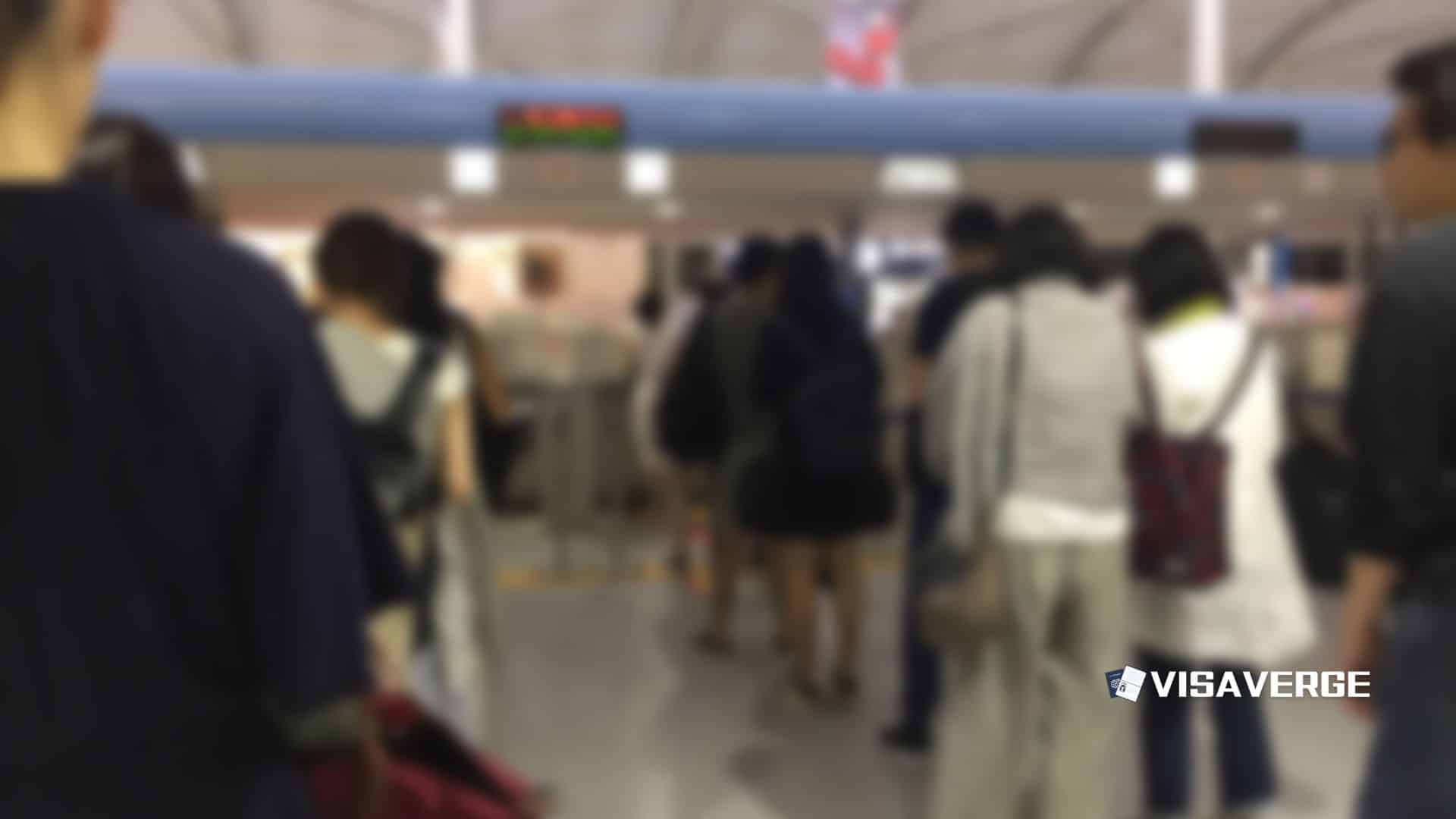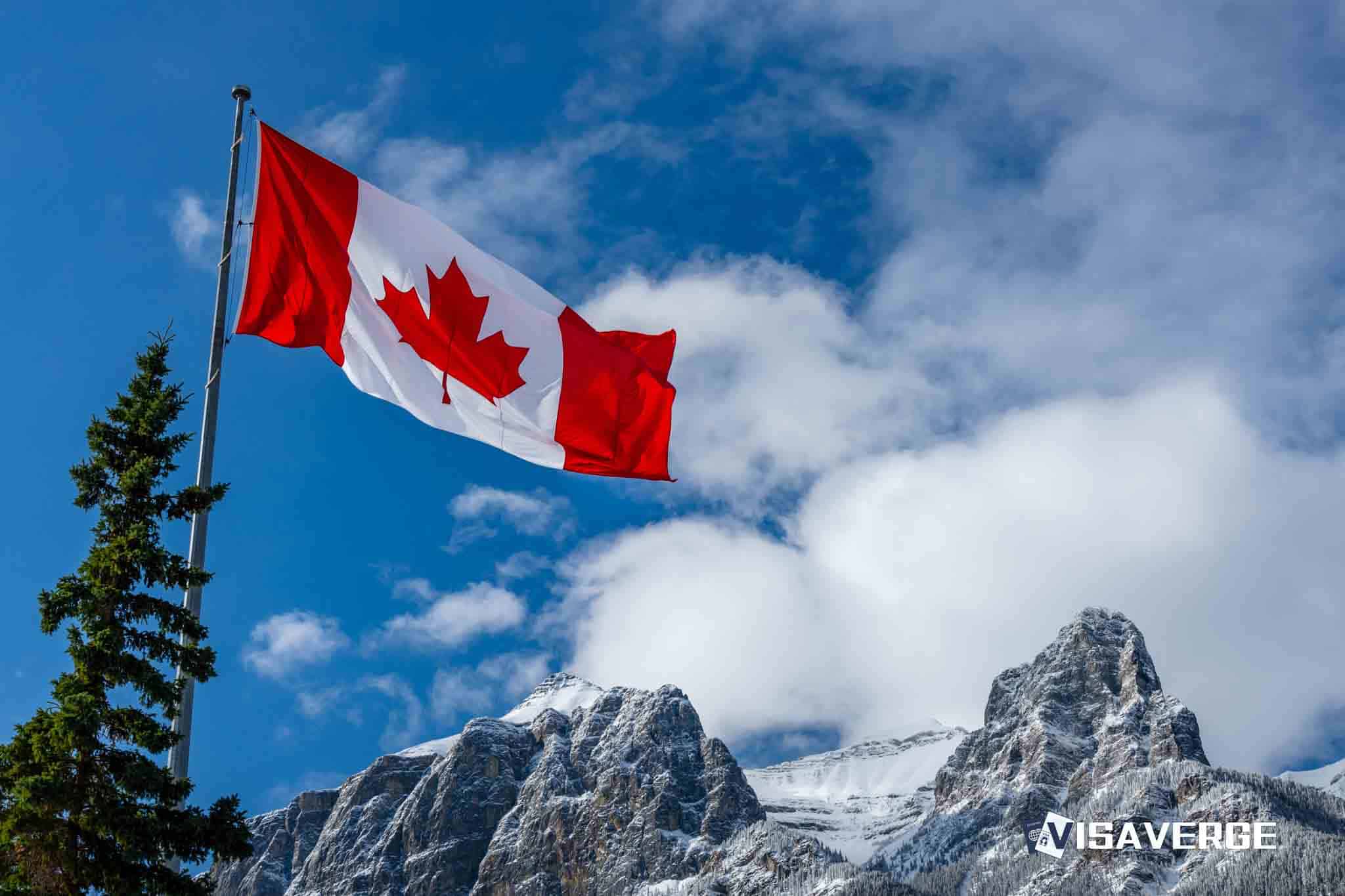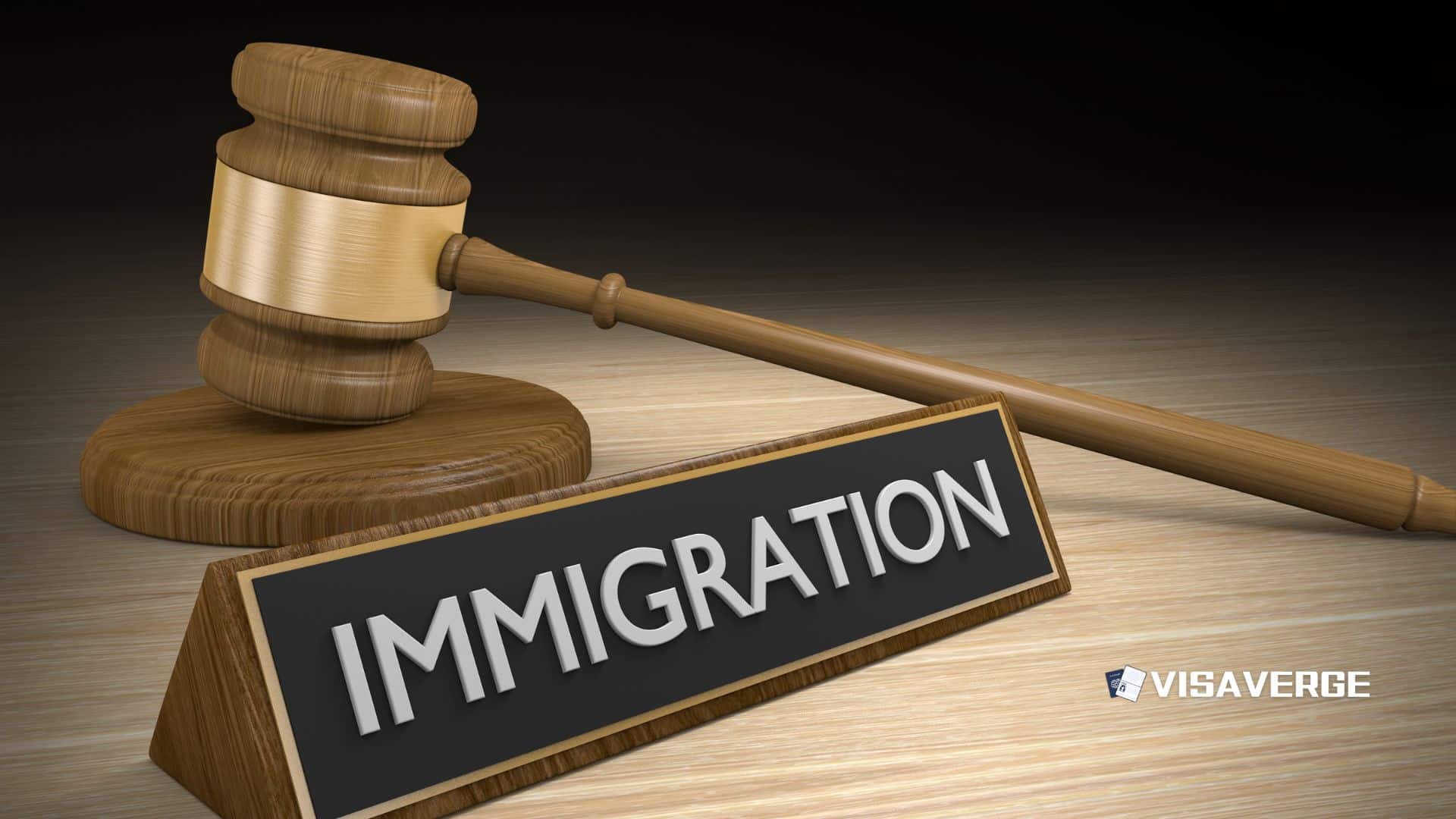Key Takeaways
• Federal Judge Kathleen Williams blocked Florida’s SB 4-C immigration law on April 30, 2025.
• Despite the injunction, Florida arrested 25 people under SB 4-C after minor traffic stops.
• SB 4-C criminalizes undocumented entry, mandates jail, no bail, and allows death penalty.
Federal Judge Blocks Florida’s Immigration Law, but 25 Arrests Continue: What’s Happening and Why It Matters
A major legal and political fight is unfolding in Florida over the state’s tough new immigration law, known as SB 4-C. Even though a federal judge has blocked the law from being enforced, Florida authorities have continued to arrest people under its provisions. As of late May 2025, at least 25 individuals have been arrested since the judge’s order, raising serious questions about the rule of law, the rights of immigrants, and the ongoing power struggle between state and federal governments.

This article explains what’s happening, why it matters, and what it could mean for immigrants, families, and communities across Florida and the United States 🇺🇸.
Who, What, When, Where, and Why
On April 30, 2025, U.S. District Judge Kathleen Williams issued a preliminary injunction—an official court order—blocking Florida’s new immigration law, SB 4-C, from being enforced. This law, signed by Governor Ron DeSantis on February 13, 2025, makes it a state crime for undocumented immigrants to enter or re-enter Florida. It also includes harsh penalties, such as mandatory jail time and even the death penalty for certain crimes.
Despite the judge’s order, a Tampa Bay Times investigation found that Florida authorities have arrested at least 25 people under the law since the injunction. Most of these arrests happened after minor traffic stops, and some of those arrested have already been sent to immigration detention centers across the country. The ongoing arrests have sparked outrage among legal experts and immigrant advocates, who say the state is ignoring the federal judge’s ruling.
How Did We Get Here? A Timeline of the Legal Battle
The fight over Florida’s immigration law has moved quickly, with several important events:
- February 13, 2025: Governor DeSantis signs SB 4-C into law, making it a state crime for undocumented immigrants to enter or re-enter Florida.
- April 2, 2025: The Florida Immigrant Coalition, the Farmworker Association of Florida, and two individuals file a lawsuit to stop the law.
- April 5, 2025: Judge Williams issues a temporary restraining order, stopping the law from being enforced for now.
- April 28, 2025: Florida Attorney General James Uthmeier files an appeal to the 11th U.S. Circuit Court of Appeals, challenging the judge’s order.
- April 30, 2025: Judge Williams issues a preliminary injunction, blocking the law while the lawsuit continues.
Despite these clear court orders, Florida authorities have continued to make arrests under SB 4-C. Judge Williams has expressed shock and concern that state officials have told police they do not need to follow her order, saying in court, “What I am offended by is someone suggesting you don’t have to follow my order, that it’s not legitimate.”
What Does SB 4-C Actually Do? Key Provisions Explained
Florida’s SB 4-C is one of the strictest state immigration laws in the country. Here’s what it includes:
- Creates state crimes for undocumented immigrants who enter or re-enter Florida.
- Mandates the death penalty for unauthorized immigrants convicted of capital offenses (the most serious crimes, like murder).
- Requires mandatory jail or prison time for anyone found guilty of entering the state without permission.
- Forces accused individuals to be held without bond (meaning they cannot be released from jail before their trial).
- Sets a minimum nine-month prison sentence for a first conviction of illegal entry, with longer sentences for repeat offenses.
These rules go far beyond what federal immigration law requires. For example, under federal law, people found guilty of illegal entry can sometimes receive a fine or probation instead of jail time.
Why Did the Federal Judge Block the Law?
Judge Williams based her decision on the U.S. Constitution’s Supremacy Clause. This part of the Constitution says that federal law is the “supreme law of the land,” and states cannot pass laws that go against federal rules. In her order, Judge Williams wrote that SB 4-C “unlawfully encroaches” on the federal government’s power to control immigration.
She pointed out several problems with the law:
- State officials would be able to prosecute people for illegal entry even if federal authorities choose not to.
- The law requires mandatory detention, taking away the federal government’s ability to decide if someone should be released before trial.
- It could interfere with federal court cases by keeping defendants in state custody.
- It sets harsher penalties than federal law, which sometimes allows for lighter sentences.
Judge Williams also agreed with arguments that the law could hurt interstate and foreign commerce. For example, it could make it harder for people and goods to move freely between states or from other countries.
Enforcement Continues Despite the Judge’s Order
The Tampa Bay Times investigation revealed that, even after the judge blocked the law, Florida authorities kept making arrests. Here are some key findings:
- Most arrests happened after minor traffic stops—things like tailgating, speeding, or stopping on the side of the road.
- Ten people were charged only with immigration violations—no other crimes.
- Six people arrested were just passengers in cars, not the drivers.
- One person arrested was actually a U.S. citizen.
- One person was arrested after a hit-and-run, but he was the victim, not the suspect.
- None of those arrested were accused of violent crimes.
Arrests took place all over Florida, including the Tampa Bay area, near Disney World, and in rural areas. The highest number of arrests happened near the state capital.
Since the law took effect in February, more than 50 people have been arrested under SB 4-C, both before and after the judge’s order.
What Happens to People After They’re Arrested?
Of the 25 people arrested since the injunction:
- At least nine have been sent to immigration detention centers in places as far away as Texas and the Pacific Northwest.
- At least one person has already been deported.
- More than three dozen others have been released from local jails, but it’s unclear if they are still in the U.S. 🇺🇸, have been deported, or are in federal custody.
No one has been convicted under the new law so far.
Why Are These Arrests a Big Deal? Legal and Human Implications
Legal experts say that continuing to arrest people under a law that a federal judge has blocked is a serious problem. Professor Sarah Paoletti, an immigration law expert at the University of Pennsylvania Carey Law School, said, “I think there is a basis for saying their arrests were illegal. And therefore their detention is illegal.”
Bacardi Jackson, executive director of the ACLU of Florida, stated, “The court’s order halts a dangerous and discriminatory law that sought to criminalize people for simply moving within the United States. Florida’s leaders may want to score political points by targeting immigrants, but the Constitution doesn’t allow it.”
These ongoing arrests raise questions about:
- Respect for the rule of law: Should state officials be allowed to ignore a federal judge’s order?
- The safety and rights of immigrants: Are people being unfairly targeted or detained?
- The balance of power: Who really controls immigration policy—the states or the federal government?
What About Other Immigration Laws in Florida?
SB 4-C is just one part of a larger push by Florida lawmakers to crack down on undocumented immigrants. In the same special legislative session, another law was passed that affects students. Starting in July 2025, undocumented students will no longer be eligible for in-state tuition at Florida’s public colleges and universities. This means many students will have to pay much higher out-of-state tuition rates.
Other recent measures in Florida include:
- Expanded E-Verify requirements: All Florida businesses must now use E-Verify, a federal system that checks if employees are allowed to work in the U.S. 🇺🇸. You can learn more about E-Verify on the official U.S. Citizenship and Immigration Services (USCIS) website.
- Statewide ID restrictions: Undocumented immigrants cannot get state-issued IDs.
- Harsher penalties for transporting undocumented immigrants: People who give rides to undocumented immigrants can face criminal charges.
- Limits on access to public healthcare and education: Some public services are now harder for undocumented immigrants to access.
The state has set aside about $300 million to help law enforcement agencies carry out these new immigration policies. This includes hiring more officers and giving $1,000 bonuses to those who take part in these operations.
What Do These Laws Mean for Immigrants, Families, and Communities?
The impact of these laws is already being felt across Florida:
- Immigrants may be afraid to drive, go to school, or seek medical care for fear of being stopped and arrested.
- Families are worried about being separated if a loved one is detained or deported.
- Employers and schools are struggling to understand the new rules and how to follow them.
- Communities are divided, with some supporting the crackdown and others calling it unfair and harmful.
According to analysis by VisaVerge.com, these policies have created confusion and fear among both immigrants and U.S. 🇺🇸 citizens. Many people are unsure about their rights and what to do if they are stopped by police.
What Happens Next? The Road Ahead
As of late May 2025, the law remains blocked by the federal judge’s order, but Florida’s appeal is still pending in the 11th U.S. Circuit Court of Appeals. It could be months before a final decision is made.
In the meantime, the ongoing arrests show that the conflict between state and federal authorities is far from over. The Florida Highway Patrol has not answered questions about why arrests are continuing despite the judge’s order.
Legal experts say that if the courts eventually rule against Florida, people who were arrested under SB 4-C could have grounds to challenge their detention or even sue for damages. But for now, many immigrants and their families are living in fear and uncertainty.
What Should Immigrants and Families Do Now?
If you or someone you know is affected by these laws, here are some steps you can take:
- Know your rights: You have the right to remain silent and to ask for a lawyer if you are stopped or arrested.
- Carry important documents: If you have legal status, carry proof with you at all times.
- Seek legal help: If you are arrested or detained, contact an immigration lawyer as soon as possible.
- Stay informed: Follow updates from trusted sources, such as the U.S. Department of Justice’s Civil Rights Division and local immigrant advocacy groups.
Conclusion: A Test of Law and Justice in Florida
The ongoing fight over Florida’s immigration law is about more than just legal rules—it’s about people’s lives, families, and futures. The actions of state officials, the response of the courts, and the courage of those affected will shape the future of immigration policy not just in Florida, but across the United States 🇺🇸.
As the legal battle continues, it’s important for everyone—immigrants, citizens, employers, and officials—to know their rights, follow the law, and seek help when needed. The story of SB 4-C is still being written, and its outcome will have lasting effects for years to come.
Learn Today
Preliminary Injunction → A court order temporarily stopping a law or action until full legal review is complete.
SB 4-C → Florida’s strict immigration law criminalizing unlawful entry and imposing harsh penalties on undocumented immigrants.
Supremacy Clause → Constitutional principle stating federal law supersedes conflicting state laws, limiting state immigration enforcement.
E-Verify → A federal electronic system that verifies employees’ legal work status in the United States.
Deportation → The formal removal of a person from the U.S., usually for violating immigration laws.
This Article in a Nutshell
Florida’s SB 4-C immigration law faces a federal block, but arrests continue. The conflict reveals challenges between state enforcement and federal authority, impacting immigrant rights and families amid heated legal battles and widespread uncertainty across Florida communities.
— By VisaVerge.com













